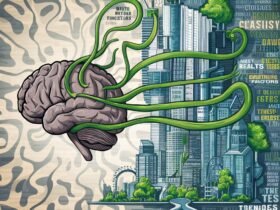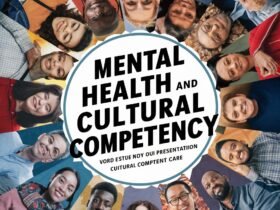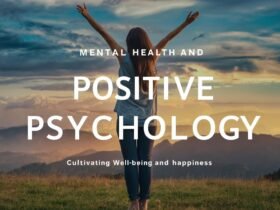Mental Health and Addiction: Breaking the Cycle of Substance Abuse
Hey there, my young and curious friends! It’s your mental health buddy, Nita Sharda, here to talk about a topic that’s super important for understanding and supporting those who may be struggling with addiction – the connection between mental health and substance abuse.
Now, I know that the world of addiction and substance abuse can feel a little scary and confusing, especially when we’re young. We may have heard words like “drugs” or “alcohol” thrown around, but not really understand what they mean or how they can impact someone’s life.
But the truth is, addiction is a very real and serious issue that affects millions of people around the world, and it’s closely tied to mental health in ways that are important for us to understand.
So today, we’re going to dive into the world of mental health and addiction, and explore how they’re connected, what the warning signs might look like, and most importantly, how we can support ourselves and others in breaking the cycle of substance abuse.
What is Addiction?
First things first, let’s define what we mean by addiction. Addiction is a complex brain disorder that involves compulsive substance use despite harmful consequences.
In other words, when someone is struggling with addiction, they may feel a strong, uncontrollable urge to use drugs or alcohol, even when they know it’s hurting them or those around them.
Addiction can involve all sorts of substances, from illegal drugs like cocaine or heroin, to legal ones like alcohol or prescription medications. And it can impact people of all ages, backgrounds, and walks of life.
But one of the most important things to understand about addiction is that it’s not a choice or a moral failing. It’s a medical condition that changes the way the brain works, and it requires compassion, support, and professional help to overcome.
The Connection Between Mental Health and Addiction
So, how does mental health fit into the picture of addiction? Well, it turns out that mental health and substance abuse are closely connected in a number of ways.
Co-Occurring Disorders
One of the biggest ways that mental health and addiction are linked is through what’s known as co-occurring disorders.
Co-occurring disorders, also known as dual diagnosis, is when someone experiences a mental health condition like depression, anxiety, or PTSD at the same time as a substance use disorder.
Studies have shown that about half of people who struggle with addiction also have a co-occurring mental health condition, and vice versa.
This is because mental health conditions and substance abuse often feed into each other in a vicious cycle. Someone who is struggling with depression or anxiety may turn to drugs or alcohol as a way to cope with their symptoms, but over time, substance abuse can actually make those symptoms worse.
On the flip side, someone who is struggling with addiction may develop mental health issues as a result of the toll that substance abuse takes on their brain and body.
Trauma and Adverse Childhood Experiences
Another way that mental health and addiction are connected is through trauma and adverse childhood experiences (ACEs).
Trauma and ACEs refer to difficult or painful events that happen in childhood, like abuse, neglect, or family dysfunction. Studies have shown that people who experience multiple ACEs are at a much higher risk for developing both mental health conditions and substance use disorders later in life.
This is because trauma and chronic stress can change the way the brain develops and functions, making it harder for people to cope with difficult emotions and increasing the risk of turning to drugs or alcohol as a way to self-medicate.
Genetics and Family History
Finally, mental health and addiction can also be linked through genetics and family history.

Studies have shown that certain genes may increase the risk of developing both mental health conditions and substance use disorders, and that these risks can be passed down from generation to generation.
Additionally, growing up in a household where substance abuse or untreated mental health conditions are present can also increase the risk of developing these issues later in life.
Warning Signs of Addiction
So, how can we tell if someone we care about may be struggling with addiction? Here are some warning signs to look out for:
Changes in Behavior or Appearance
One of the biggest red flags for addiction is sudden or dramatic changes in behavior or appearance.
This might include things like:
- Withdrawing from friends and family
- Losing interest in hobbies or activities they used to enjoy
- Neglecting personal hygiene or appearance
- Sleeping more or less than usual
- Eating more or less than usual
- Experiencing mood swings or angry outbursts
Secretive or Suspicious Behavior
Another warning sign of addiction is secretive or suspicious behavior.
This might include things like:
- Lying about where they’ve been or who they’ve been with
- Hiding drugs or alcohol in their room or personal belongings
- Stealing money or valuables to pay for drugs
- Hanging out with a new group of friends who may be using drugs
- Avoiding questions or getting defensive when asked about substance use
Physical and Health Changes
Addiction can also take a toll on physical health, leading to noticeable changes in appearance or health.
This might include things like:
- Bloodshot eyes or dilated pupils
- Sudden weight loss or gain
- Frequent nosebleeds or runny nose
- Shaking or tremors
- Slurred speech or impaired coordination
- Frequent illnesses or infections
If you notice any of these warning signs in someone you care about, it’s important to reach out and offer support and encouragement to seek help.
Breaking the Cycle of Addiction
So, what can we do to help break the cycle of addiction and support those who may be struggling? Here are some tips:
Educate Yourself and Others
One of the most important things we can do is to educate ourselves and others about addiction and mental health.
This means learning about the warning signs, risk factors, and available treatments for addiction, as well as the ways that mental health and substance abuse are connected.
It also means working to break down the stigma and shame that often surrounds addiction, and promoting a culture of compassion, understanding, and support for those who may be struggling.
Encourage Healthy Coping Strategies
Another way we can help prevent addiction is by encouraging healthy coping strategies for dealing with stress, anxiety, and other difficult emotions.
This might include things like:
- Practicing mindfulness or meditation
- Engaging in regular exercise or physical activity
- Spending time in nature or with loved ones
- Pursuing hobbies or creative outlets
- Seeking support from a therapist or counselor
By promoting healthy ways to cope with life’s challenges, we can help reduce the risk of turning to drugs or alcohol as a way to self-medicate.
Support Access to Treatment
If someone you care about is struggling with addiction, one of the most important things you can do is to support their access to professional treatment and recovery services.
This might include things like:
- Helping them find a reputable treatment program or provider
- Offering to attend support group meetings or therapy sessions with them
- Providing transportation or childcare to help them attend treatment
- Offering emotional support and encouragement throughout the recovery process
Remember, recovery is a journey, and it’s important to be patient, non-judgmental, and supportive every step of the way.
Practice Self-Care and Set Boundaries
Finally, it’s important to remember that supporting someone through addiction and recovery can be emotionally and mentally taxing, and it’s crucial to practice self-care and set boundaries to protect your own well-being.
This might include things like:
- Setting limits on how much time or energy you can realistically give
- Seeking support from your own therapist or support group
- Taking time for yourself to recharge and engage in activities that bring you joy
- Remembering that you can’t control someone else’s recovery, and that it’s okay to step back if needed
At the end of the day, the most important thing is to approach addiction and mental health with compassion, empathy, and a willingness to support and uplift those who may be struggling.
A Message of Hope and Resilience
Before we wrap up, I want to leave you with a message of hope and resilience, my young friends.
If you or someone you care about is struggling with addiction or mental health issues, know that you are not alone, and that there is always hope for healing and recovery.
No matter how dark or difficult things may seem, there is always a way forward, and there are always people and resources available to support you on your journey.
Remember, you are stronger and more resilient than you even know, and you have the power within you to overcome any obstacle that comes your way.
So don’t be afraid to reach out for help when you need it, and don’t be afraid to keep pushing forward, even when things get tough.
Surround yourself with people who love and support you, and never forget how valuable and worthy you are, just as you are.
And if you ever need a reminder of how amazing and resilient you are, just remember that your mental health buddy Nita is always here, cheering you on and sending you all the love and virtual hugs in the world.













Leave a Reply